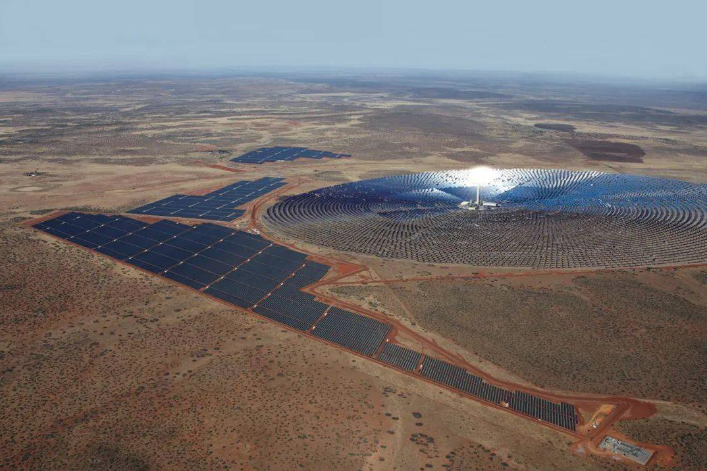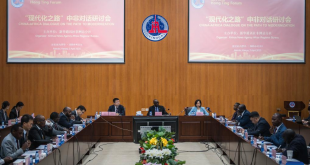Siyabonga Cwele

South Africa is a country that is deeply committed to the idea of cooperation in the attainment of its domestic and global goals. All heads of State, former and including the current President, His Excellency President Cyril Ramaphosa have always engaged social partners – government, labour, business, religious leaders and community organisations – through intensive and detailed consultations to deliver on South Africa’s goals.
Similarly, in the international arena, particularly in the era of the covid-19 pandemic, South Africa utilized its chairship of the African Union in 2020 to engage the World Health Organisation (WHO) and joined the COVID-19 Vaccines Global Access (COVAX) facility, an effort led by the WHO and the global Coalition for Epidemic Preparedness Innovations (CEPI) to make sure that any products are proven to be safe and effective and quickly reach rich and poor countries alike. The abovementioned platforms have also been endorsed by President Xi Jinping.
China has played a leading role in not only comprehensively managing the virus in the country but having no less than four major pharmaceuticals developing the science behind the vaccine that has already been administered to millions of specified categories in China. When the African Continent was hit by the virus, China sent medical teams and supplies to different countries on the Continent, to assist in curbing the spread of the virus. Furthermore, China cooperated with at least 16 countries in the testing of the efficacy of five candidate vaccines, this is illustrative of what is possible when we act together as a family of nations to achieve and even overcome challenges faced in the global arena.
South Africa’s economy, like other economies, has contracted sharply in the wake of the pandemic which has led to the shedding of more than 2 million jobs and the closure of several businesses. President Cyril Ramaphosa launched the Economic Reconstruction and Recovery Plan last year to respond to the challenge imposed by covid-19 on the economy.
The response was three-pronged – firstly, the government developed a robust health response, secondly, social and economic relief was provided for the most vulnerable people and businesses were supported with the aim of keeping people employed and currently, economic recovery is the main focus as vaccinations are being rolled out in order to ensure safety for all citizens as economic activities begin to normalize. An inclusive partnership has been formed between government, medical schemes and the private sector to support the acquisition, funding and distribution of vaccines which gives us hope that such cohesive intersectional cooperation has allowed government to develop the best course of action to guide South Africa past the pandemic.

The Redstone concentrated solar thermal power (CSP) project in South Africa enters into the stage of construction
Importantly, the South African Economic Reconstruction and Recovery Plan builds on the common ground established over the last few months which will focus on unleashing the potential of our economy by implementing necessary reforms and removing regulatory barriers that increase costs and create inefficiencies in the economy, securing our energy supply, and freeing up digital infrastructure. South Africa remains committed to the vision 2030 espoused in the National Development Plan and the programme that was outlined at the beginning of the 6th democratic administration prior to the outbreak of the pandemic.
South Africa is also on a path to promote science and technology; reform the agricultural sector; increase manufacturing and infrastructure development; improve transport networks; upgrade digital networks; ensure the supply of energy – including renewables and reviving the tourism economy. The key aim is to stimulate job creation and move them up the value chain in terms of manufacturing and processing. There are more than a hundred Chinese companies who are headquartered or with major operations in South Africa for the African market.
This is important for our country, similarly, South Africa would like to increase the number of sectors in which it exports its goods in China. Currently, there are companies from the mining, finance, ICT, chemicals and logistics. Ideally, there would be a larger number of agricultural produce, capacity building or opportunities to collaborate in the digital space; Chinese consumers of South African manufactured goods that could evolve into secondary and tertiary industries. South Africa and China have not yet fully explored the potential for investment and trade between each other. Our country has well developed economic infrastructure and a growing emerging market. The investment potential lies in the diversity of sectors and industries. South Africa is very keen on attracting foreign investors this is supported by policies created and regulations enacted to ensure that potential investors can access the information they require and that foreign investors are protected.
South Africa also offers investors flexibility in the types of investments they want to make and the level of involvement during the investment process. South Africa is also a major trading nation, exporting and importing billions worth of goods every year with vast infrastructure to ensure operational fluidity and is one of many dynamic and thriving African markets.
On a bilateral level, South Africa’s ties with China are comprehensive and cover many areas of cooperation including political economic, and people-to-people exchanges. South Africa attributes the good relations to sustained communication at the highest level on key issues of interest.
As South Africa’s biggest investor, there are many areas in which the two countries find common ground, with a partnership that involves exchanges at high-level visits and meetings on the margins of several multilateral fora. The Chinese leadership under President Xi is also forward thinking about its relationship with not only South Africa but the African continent as a whole.
South Africa is encouraged by the areas where China believes Africa-China cooperation can be strengthened, many of which are aligned with Agenda 2063 – the development agenda that guides the African Union’s policy making framework. The areas of cooperation include promoting industrial capacity cooperation and more locally based manufacturing of goods; increasing cooperation with Africa on regional connectivity, and explore free trade cooperation with Africa; enhancing agriculture cooperation with Africa, including on food production, storage and transportation; promote digital cooperation with Africa and seize opportunities in the field of ICT to build a digital Africa; promoting environmental cooperation with Africa in pursuit of sustainable development; and promoting military and security cooperation with Africa, and promote political settlement of hot spot areas on the continent.
With regard to the Forum on China–Africa Cooperation (FOCAC), President Xi committed China to shared fair trade with the African continent. With a population 1.2 billion and a combined gross domestic product of US$2.5 trillion Africa has opportunities in abundance for China and Africa alike. During the 2018 FOCAC Summit, President Xi Jinping proposed the Eight Initiatives aimed at pursuing a win-win strategy for giving new impetus to economic, political and security collaboration between China and Africa. At the FOCAC Summit due to be held later this year in Senegal, FOCAC members will report on the achievements and progress of the Eight Initiatives. South Africa will participate and we know that the summit will be fruitful and build on Africa-China relations.
H.E Siyabonga Cwele is the ambassador of South Africa to China is the
Source: China Investment
 Africa -China Review Africa -China Cooperation and Transformation
Africa -China Review Africa -China Cooperation and Transformation
